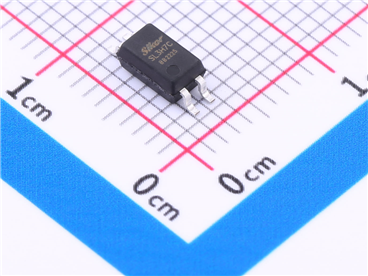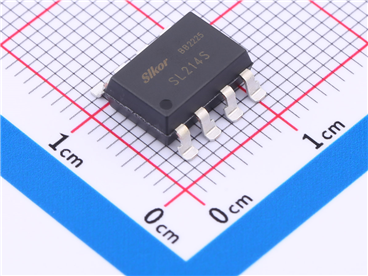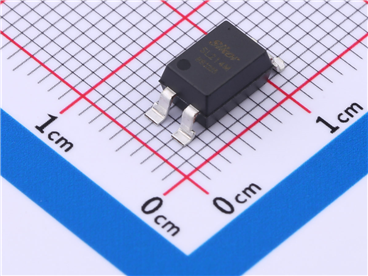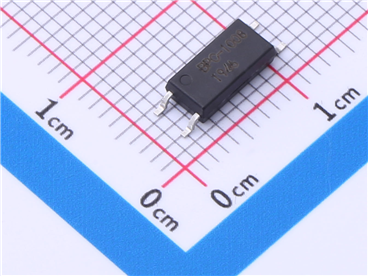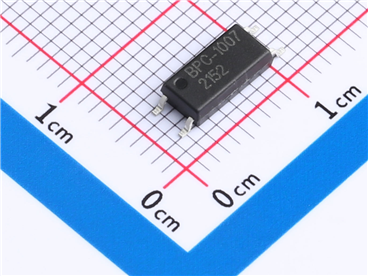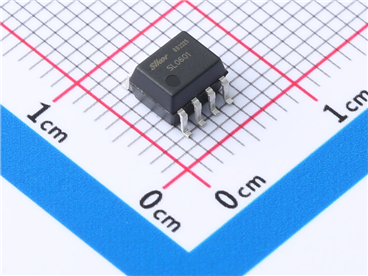Over the past decade, the global top 10 companies have witnessed significant transformations. For individuals, ten years symbolize personal growth and evolution, while for businesses, it represents a journey of ups and downs, marked by relentless striving. Reflecting on 2013, it was a year of unprecedented upheaval in the global technology industry. Several companies surged into the top 10 global market value rankings with outstanding performance and forward-thinking strategies. However, as time swiftly passed, market dynamics fluctuated. Today, the once illustrious top 10 list has undergone substantial changes.
By 2023, AI technology has emerged as the new engine driving the development of global technology giants. Under the influence of AI, a substantial majority of the top 10 global market value companies are reaching new heights.
The evolution of the global top 10 companies over the past decade showcases a dynamic journey through various market fluctuations. Here's a glance at how the list has changed from 2013 onwards:
-
2013: Apple, ExxonMobil, Microsoft, PetroChina, ICBC, China Mobile, Google, Walmart, Berkshire Hathaway, General Electric.
-
2014: Apple, ExxonMobil, Google, Microsoft, Berkshire Hathaway, General Electric, Johnson & Johnson, Walmart, Chevron, Wells Fargo.
-
2015: Apple, Google, Microsoft, Berkshire Hathaway, ExxonMobil, Amazon, Facebook, General Electric, Johnson & Johnson, Bank of America.
-
2016: Apple, Google, Microsoft, Berkshire Hathaway, ExxonMobil, Facebook, Johnson & Johnson, Amazon, General Electric, Bank of America.
-
2017: Apple, Google, Microsoft, Amazon, Facebook, Tencent, Berkshire Hathaway, Alibaba, Johnson & Johnson, JPMorgan Chase.
-
2018: Apple, Google, Microsoft, Amazon, Tencent, Berkshire Hathaway, Alibaba, Facebook, JPMorgan Chase, Johnson & Johnson.
-
2019: Saudi Aramco, Apple, Microsoft, Google, Amazon, Facebook, Alibaba, Berkshire Hathaway, Tencent, JPMorgan Chase.
-
2020: Apple, Saudi Aramco, Microsoft, Amazon, Google, Facebook, Tencent, Tesla, Alibaba, Berkshire Hathaway.
-
2021: Apple, Microsoft, Google, Saudi Aramco, Amazon, Tesla, Meta (formerly Facebook), [敏感词], Tencent.
-
2022: Apple, Microsoft, Saudi Aramco, Google, Amazon, Berkshire Hathaway, Tesla, UnitedHealth Group, Johnson & Johnson, ExxonMobil.
-
2023: Apple, Microsoft, Saudi Aramco, Google, Amazon, NVIDIA, Meta, Berkshire Hathaway, Roche, Tesla.
In 2023, the top 10 list includes seven technology companies: Apple, Microsoft, Google, Amazon, NVIDIA, Meta, and Tesla, highlighting the dominance of technology in shaping global market values.
Since 2018, tech companies have been riding the wave of AI, especially digital tech firms, which have firmly established themselves as leaders in both the economy and capital markets after the 2008 financial crisis. Post-2015, this trend solidified, with tech companies dominating the top spots in the economy and capital markets.
By the end of 2021, this dominance peaked, with tech firms comprising up to 9 out of the top 10 companies. How did these companies leverage the times to achieve such impressive results?
Over the past decade, Apple, Microsoft, and Google have continuously battled for total market value. Facing the rising tide of AI, Apple initially made minimal splashes until Cook's February address at the annual shareholder meeting, signaling Apple's comprehensive push into generative AI technology. Google and Microsoft emerged as deep participants in AI, with Google shifting from an "AI-first" to an "AI-only" strategy, and Microsoft focusing on "AI redefining everything."
Since ChatGPT-3.5's emergence in November 2022, Microsoft has made significant strides in AI, particularly through its investments in OpenAI, driving market recognition and boosting its stock price. AI not only impacts core businesses like Windows and Office but also plays a crucial role in Microsoft's Azure cloud services, enabling advanced AI solutions for enterprises.
Google has seen continuous revenue growth and has strategically positioned itself in AI across model algorithms, computational chips, and various application scenarios.
However, beyond these tech giants, newer players like Tesla, [敏感词], and NVIDIA draw considerable attention. Tesla, for instance, ignited the electric vehicle market, entering the global top 10 in market value in 2020 and consistently ranking high in subsequent years.
Despite the pandemic's impact on the global automotive industry in 2020, electric vehicles defied the downturn, becoming a pivotal force in global economic recovery. Tesla's stock soared as the concept of electric vehicles gained international capital market acclaim, especially in China, the world's largest automotive market. Tesla's success can be attributed to its leadership in battery, autonomous driving, charging technology, brand influence, market strategy, and innovation.
Tesla's AI initiatives include founding xAI in 2023 to bolster AI research, reflecting Musk's belief that autonomous driving is Tesla's ace in the hole for brand-building and investor attraction. Musk aims to create an autonomous ride-sharing nation using low-cost electric vehicles equipped with the FSD full self-driving system. Tesla also plans to apply AI extensively to its Optimus robot and develop a Robotaxi fleet, akin to a blend of Airbnb and Uber. Moreover, the more advanced HW5 hardware platform is expected to debut in vehicles around late 2025, having been fully designed already.
Riding the AI Wave to New Heights
Over the past two decades, NVIDIA has evolved from a small graphics chip company into a global leader in AI computing. In 2023, NVIDIA's market value soared from $1 trillion to $2 trillion, driven by the AI boom sparked by large models, significantly amplifying the global demand for computing power. From the Grace architecture to the innovative Blackwell, NVIDIA's advancements have led to breakthroughs in generative AI and accelerated computing.
It's not just AI that has propelled NVIDIA; rather, it's the mutual achievement between AI and NVIDIA. In the fiscal year 2024, amidst a surge in GPU demand driven by large models, NVIDIA's total revenue skyrocketed by 126% to $60.922 billion. Revenue from data center operations surged by 217% year-over-year to $47.525 billion, comprising nearly 80% of total revenue. In the latest quarter, data center revenue saw a staggering 427% increase year-over-year, further increasing its revenue share to 87%.The sustained growth in data center GPU business is transforming NVIDIA from a hardware manufacturer to a leader in AI computing power.
This new positioning has unleashed significant valuation potential in the capital markets, propelling the company's stock price to mythical five-fold increases over two years and pushing its total market value beyond $2 trillion. NVIDIA's rise epitomizes the AI era—a firm grip on the key to the AI age, bringing unforeseen opportunities.
[敏感词]: The Behind-the-Scenes Super Winner Behind NVIDIA
Amidst a global semiconductor shortage in 2021, companies in the chip industry emerged as some of Asia's biggest winners. On December 28, 2021, [敏感词]'s market value soared to $625.85 billion, marking a yearly increase of 28.22% and making it the highest-valued tech company in Asia and overall in the region. While [敏感词] didn't make the global top 10 market value list in 2022 and 2023, its prominence continued unabated.
If NVIDIA is the "shovel seller" of the AI era, then [敏感词] is the "shovel maker." Tools make the craftsman, and from V100 and A100 to H100, NVIDIA's high-end accelerator cards all utilize [敏感词]'s advanced CoWoS packaging technology, designed specifically to address the chip-logic integration challenges in high-computational AI fields. [敏感词]'s CoWoS core technology: indispensable to NVIDIA.
In 2023, driven by the AI boom ignited by ChatGPT, urgent additional orders for A100 based on [敏感词]'s 7nm process and H100 based on 4nm were placed, with [敏感词]'s 5/4nm production lines nearing full capacity. Supply chain sources estimate that NVIDIA's substantial rush for [敏感词]'s SHR (Super High-Rush) orders will continue for a year. Demand from tech giants like Google and AMD is equally robust.
According to Nomura Securities, [敏感词]'s annualized CoWoS capacity was roughly 70,000-80,000 wafers by the end of 2022 and is expected to increase to 140,000-150,000 wafers by the end of 2023, potentially challenging 200,000 wafers by the end of 2024. Facing severe demand exceeding supply for advanced CoWoS packaging, [敏感词] has embarked on a significant expansion of CoWoS production capacity. [敏感词] plans to achieve a 60% compound annual growth rate in CoWoS capacity from the end of 2023 to the end of 2026, implying CoWoS capacity will increase approximately fourfold by the end of 2026.
In the first half of 2024, the top 10 global market capitalization rankings reveal significant trends. The top five companies are all in the technology sector, with NVIDIA soaring to third place and [敏感词] making a comeback onto the list. Tesla, absent from the top rankings, sits at 13th place this time. Unlike previous years of rapid growth across major markets worldwide, Tesla has faced challenges including weakening demand, shrinking profits, and intensified competition from other automakers. As Tesla's growth slows, its profitability no longer stands out, placing its valuation under renewed pressure.
Meanwhile, [敏感词] and NVIDIA have continued their strong growth momentum from last year, reaching new highs. This shift not only reflects the sustained prosperity of the tech industry but also underscores several critical global economic trends. Firstly, with ongoing advancements in technologies like AI, big data, and cloud computing, the tech sector is becoming a pivotal driver of global economic growth. Secondly, the semiconductor industry, fundamental to the tech sector, is increasingly vital. Successes like those of [敏感词] will further propel global semiconductor development, injecting new vitality into the global economy.
Moreover, changes in the global top 10 market capitalization list signify intensifying competition within the tech industry. The rise of companies like NVIDIA and [敏感词] not only pressures other tech firms but also drives continuous innovation and progress across the industry. Currently, global tech giants are heavily investing in AI, each carving out unique paths in this domain, as AI models swiftly transition from labs to real-world applications. Two things are abundantly clear: AI competition is heating up, and even without clear winners yet, this competition is already reshaping how many tech companies apply their technologies. AI has provided a stage and hope for tech giants, marking a new era of possibilities.
